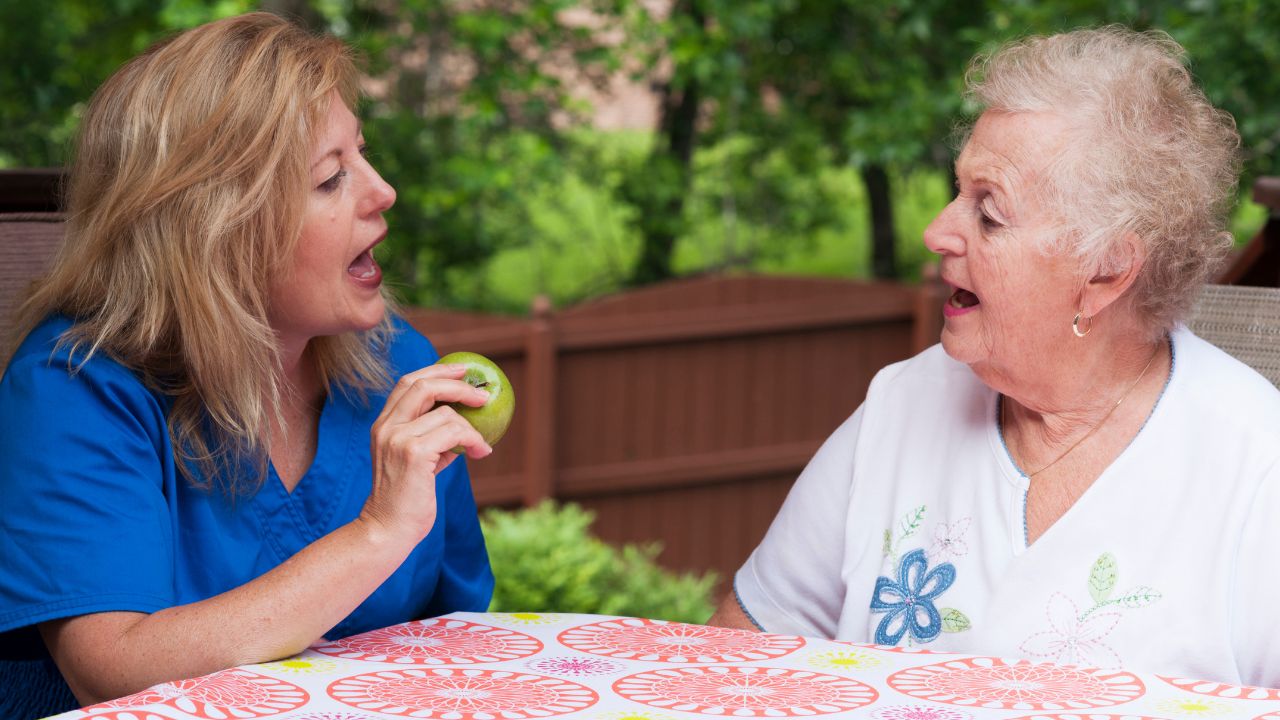As India is progressing towards becoming a socially developed country w.r.t Elderly Care, hence it is imperative to define and develop national standards and guidelines on the various service delivery components of Aged Care.
One important area for developing guidelines and training is Speech Therapy.
Though most seniors may not require services of a speech therapist, however it is important for the care staff and family caregivers to be aware on the basic guidelines on speech therapy and management.
Common causes of speech impairment in older people can include:
- Stroke
- Traumatic head injury
- Brain tumor
- Neurodegenerative diseases
The attached resource document, Guideline for Speech Therapy Service in Residential Care Homes for the Elderly (RCHEs) by Hong Kong Institute of Speech Therapists Limited, states that;
Speech Therapists are uniquely qualified and should be considered as core members in management of feeding, swallowing, speech and language disorders of residents in RCHEs.
The roles of Speech Therapists are as follows:
1) Management of Feeding and Swallowing disorders:
Speech Therapists play an essential role in the screening, assessment, diagnosis and management of feeding and swallowing disorders in RCHEs residents.
2) Management of Communication disorders:
Speech Therapists play an essential role in the screening, assessment, diagnosis and intervention of RCHEs residents with developmental or acquired speech and/or language disorders.
3) Management in End-of-life residents:
Speech Therapists have roles in different aspects for the end-of-life residents.
4) Management in Comfort feeding:
Comfort Feeding is a palliative approach of nutritional intake. It can be considered when residents are suffering from irreversible end-stage disease, and the swallowing disorders and / or feeding problems are significant.
Some common Speech Therapy intervention areas are:
1) Aphasia: A disorder that affects how we communicate. It can impact one’s speech, as well as the way we write and understand both spoken and written language.
Aphasia usually happens suddenly after a stroke or a head injury. But it can also come on gradually from a slow-growing brain tumor or a disease that causes progressive, permanent damage (degenerative).
2) Dysarthria: Weakness in the muscles used for speech, which often causes slowed or slurred speech.
3) Apraxia: Difficulty with skilled movements even when a person has the ability and desire to do them.
Apraxia is more common in older adults due to the higher incidence of neurological diseases, such as stroke and dementia.
The document can be downloaded here (Guidelines for Speech Therapy in Elderly Care Homes) or can be viewed below
